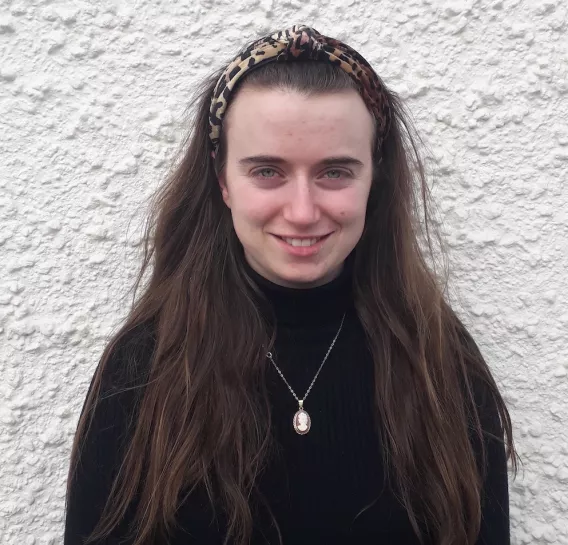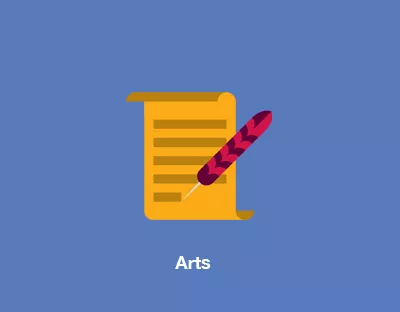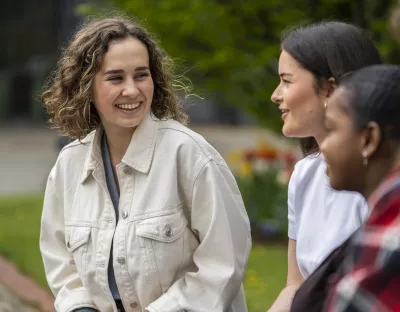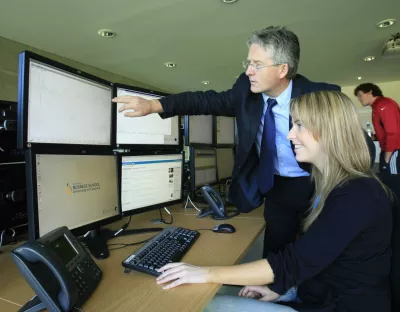Key Info
Politics and International Relations
Entry route(s):
Politics and International Relations can be taken on both LM002 Bachelor of Arts & LM019 Bachelor of Science in Social Sciences. Subject combinations & course structures can be reviewed on the appropriate programme page.
About you
The study of Politics and International Relations is all about thinking critically and understanding how the world works. If you are interested in national or international current affairs; if you find yourself asking questions about why things are the way they are and how they might change; then Politics and International Relations at UL could be for you. You will learn how to research, how to study and develop your analytical and reasoning skills, and how to apply these skills to the real world. You will learn about Ireland and Europe, their place in the world; how political decisions are made and in whose interest; how states interact in the international system; about what makes a good society and about what doesn’t, and how we might tell the difference between the two.
Why study Politics and International Relations at UL?
In today’s globalised world, politics must be understood from the broadest possible perspective. Our staff have a particularly wide breath of expertise across the discipline, and the Politics and International Relations programme at UL stands out for the wide range of subject areas covered. As well as gaining a thorough understanding of Irish and EU politics, students will learn about the wider international system, and will have the opportunity to study the politics of different regions of the world. The deeper philosophical questions about how societies and governments should be organised are also addressed. In the final year, students have the opportunity to specialise in areas of politics that they are particularly interested in.
Learn more about our courses and upcoming events
What you will study
In the first year, you will take introductions to the broad study of Politics and International Relations, whereas in the second year you separately take courses related to the main studies within the field (Irish Politics, European Politics, Political Theory, International Relations and Political Economy, and Public Administration). You then have a wide range of co-op/work placements before going on study abroad to a large choice of universities (including those in Malta, Czech Republic, Turkey, Iceland, France and Germany). In the final year, you can choose a number of electives that include looking at issues such as global justice, international organisations, Russian Politics, African Politics and issues around peace and conflict.
Modules are offered on both Bachelor of Arts (LM002) and BSc. Social Sciences (LM019) - Both are subject to change.
| Semester 1 | Semester 2 | ||
| PO4051 | Introduction to Politics and International Relations 1 | PO4052 | Introduction to Politics and International Relations 2 |
| Semester 3 | Students select 2 or 4 depending on their programme of study | Semester 4 |
| PO4023 | Comparative European Politics | Cooperative Education Work Placement |
| PO4018 | International Relations | |
| PO4033 | Political Theory | |
| PO4013 | Government and Politics of Ireland | |
| PO4127 | Regionalism in World Politics |
| Semester 5 |
| Erasmus/Exchange placement with a partner institution abroad |
| Semester 6 | |
|
Students select 2 or 4 depending on their programme of study |
|
|
PO4102 |
Methods and Research in Political Science |
|
PO4015 |
Government & Politics of the EU |
|
PA4018 |
Public Policy Process |
|
PO4030 |
Theories of Distributive Justice |
|
PO4004 |
Global Political Economy |
A selection of modules from the list below will be offered. This will change from year to year.
| Semester 7 | Students select 2 or 4 depending on their programme of study |
|
PO4007 |
Power, Politics and Social Change in Latin America |
|
PO4008 |
African Politics: Development and Democracy |
|
PO4016 |
Issues of European Integration |
|
PO4017 |
Politics of the United States |
|
PO4027 |
International Organisations & Global Governance |
|
PO4028 |
The Politics of Ethnic Conflict |
|
PO4117 |
Policy Making in the European Union |
|
PO4032 |
Russian Politics |
|
PO4038 |
European Party Politics |
|
PO4041 |
Politics of Oil |
|
PO4048 |
Issues in World Politics |
|
PO4058 |
Politics of the Third World |
|
PO4067 |
Studies in Political Thought |
|
PO4068 |
Political Leadership |
|
PO4077 |
Nations and Nationalism in the Modern World |
|
PO4088 |
Introduction to Terrorism and Violent Extremism |
|
PO4107 |
Nationalism, Ethnicity and Conflict |
|
PO4108 |
Multiculturalism and Political Theory |
|
PO4118 |
Ireland and the EU |
|
PA4013 |
Local Government |
|
PA4017 |
Sub-national Government |
| PA4007
|
Careers and influence in public leadership: ministers and civil servants |
|
PL4013 |
Community Development |
| Semester 8 | Students select 2: |
|
PO4007 |
Power, Politics and Social Change in Latin America |
|
PO4008 |
African Politics: Development and Democracy |
|
PO4016 |
Issues of European Integration |
|
PO4017 |
Politics of the United States |
|
PO4027 |
International Organisations & Global Governance |
|
PO4028 |
The Politics of Ethnic Conflict |
|
PO4117 |
Policy Making in the European Union |
|
PO4032 |
Russian Politics |
|
PO4038 |
European Party Politics |
|
PO4041 |
Politics of Oil |
|
PO4048 |
Issues in World Politics |
|
PO4058 |
Politics of the Third World |
|
PO4067 |
Studies in Political Thought |
|
PO4068 |
Political Leadership |
|
PO4077 |
Nations and Nationalism in the Modern World |
|
PO4088 |
Introduction to Terrorism and Violent Extremism |
|
PO4107 |
Nationalism, Ethnicity and Conflict |
|
PO4108 |
Multiculturalism and Political Theory |
|
PO4118 |
Ireland and the EU |
|
PA4013 |
Local Government |
|
PA4017 |
Sub-national Government |
|
2976 |
Careers and influence in public leadership: ministers and civil servants |
|
PL4013 |
Community Development |
Entry requirements
| Additional considerations |
Entry requirements are dependent on your programme of choice. Please click your preferred programme below: For certain subjects, additional special qualifications specific to individual subjects or disciplines may be determined by the respective departments in accordance with Academic Council regulations. Applications are especially welcome from Mature Students. Mature applicants must apply through the Central Applications Office (CAO) by 1 February. QQI Entry Certain QQI Awards are acceptable in fulfilling admission requirements for both LM002 and LM019. More information on the UL Admissions QQI page including a full list of modules. |
|---|---|
| Non-EU Entry Requirements |
|
How to apply
| Where are you applying from? | How to Apply |
|---|---|
| Ireland | Irish students must apply to UL via the CAO. More information can be found here. |
| The UK | Students who have completed their A-Levels can apply to UL via the CAO. More information can be found on the Academic Registry website. |
| The EU | EU Students can apply to UL via the CAO. More information can be found on the Academic Registry website. |
| Non-EU country | If you are outside of the EU, you can apply for this subject through the Bachelor of Arts degree or |
Fees and funding
Student course fees are broken into three components - Student contribution, Student Levy and Tuition Fees.
A number of illustrative examples of fees for this course based on the current fee levels have been set out in the tables below.
An explanation of the components, how to determine status and the criteria involved is provided below the examples as is a list of possible scholarships and funding available.
EU Students with Free fees status in receipt of a SUSI grant
| HEA pays | Tuition Fees | €2,558 |
| SUSI pays | Student contribution | €3,000 |
| Student pays | Student Levy | €102 |
| Total | €5,660 |
EU Students with Free fees status not in receipt of a grant
| HEA pays | Tuition Fees | €2,558 |
| Student pays | Student contribution | €3,000 |
| Student pays | Student Levy | €102 |
| Total | €5,660 |
Students with EU fee status not in receipt of a grant
| Student pays | Tuition Fees | €2,558 |
| Student pays | Student contribution | €3,000 |
| Student pays | Student Levy | €102 |
| Total | €5,660 |
Non-EU Students
| Student pays | Tuition Fees | €16,798 |
| Student pays | Student Levy | €102 |
| Total | €16,900 |
Student course fees are comprised of the following components:
Student Contribution
Annual charge set by the government for all full-time third level students. All students are liable unless they have been approved for a grant by Student Universal Support Ireland (SUSI). Please refer to https://www.studentfinance.ie to determine your eligibility for a grant and for instructions on how to apply. The current student contribution is set at €3000.
Student Levy
All students are liable to pay the Student Levy of €102. Please note the Student Levy is not covered by the SUSI Grant.
Tuition Fees
These are based on Residency, Citizenship, Course requirements.
Review the three groups of criteria to determine your fee status as follows
-
Residency
- You must have been living in an EU/EEA member state or Switzerland for at least 3 of the 5 years before starting your course
-
Citizenship
- You must be a citizen of an EU/EEA member state or Switzerland or have official refugee status
-
Course Requirements
(all must be met)
- You must be a first time full-time undergraduate (Exceptions are provided for students who hold a Level 6 or Level 7 qualification and are progressing to a Level 8 course in the same general area of study).
- You must be undertaking a full-time undergraduate course of at least 2 years' duration
- You cannot be undertaking a repeat year of study at the same level unless evidence of exceptional circumstances eg serious illness is provided (in which case this condition may be waived)
Depending on how you meet these criteria your status will be one of the following -
- Free Fee Status: You satisfy all three categories (1, 2 and 3) and therefore are eligible for the Higher Education Authority’s Free Fees scheme.
- EU Fee Status: You satisfy both the citizenship and residency criteria but fail to satisfy the course requirements and are liable to EU fees.
- Non EU Fee Status: You do not meet either the citizenship or residency criteria and are therefore liable to Non EU fees.
More information about fees can be found on the Finance website
These scholarships are available for all courses
| Title | Award | Scholarships Available |
|---|---|---|
| All Ireland Scholarships - sponsored by J.P. McManus | €6,750 | 125 |
| Brad Duffy Access Scholarship | €5,000 for one year | 1 |
| Bursary for my Future Scholarship | €2,750 one off payment | 4 |
| Civic Engagement Scholarship | €1500 | 1 |
| Cooperative Education Award | 1 medal per faculty | |
| Elaine Fagan Scholarship | €1,500 | |
| Financial Aid Fund | ||
| Hegarty Family Access Scholarships | €5,000 for one year | 2 |
| Higher Education Grants & VEC Grants | ||
| Irish American Partnership Access Scholarships | €5,000 | 2 |
| Paddy Dooley Rowing Scholarship | €2,500 | |
| Plassey Campus Centre Scholarship Programme | ||
| Provincial GAA Bursaries Scheme | €750 | |
| Stuart Mangan Scholarship | ||
| The Michael Hillery and Jacinta O’Brien Athletics Scholarship | Various benefits equating to over €7,000 in value | |
| UL Sports Scholarships | Varies depending on level of Scholarship | Multiple |
Your future career
Recent graduates of this programme are working as policy advisors, civil servants, researchers, elected representatives, data analysts, public relations officers, teachers, journalists.
Career areas open to you with a degree in Politics and International Relations include;
- Public Service
- European and International Agencies
- Business, Heritage and Tourism
- Education and Teaching
- Voluntary and Community Organisations
- Media, Journalism and Public Relations
- Training and Equal Opportunities
- Policy Evaluation Research
- Urban Planning and Rural Development
- Social and Market Research
Follow-On Study
- Graduate Diploma/MA in Public Administration
- MA International Studies
- MA Peace and Development Studies
- MA Politics
- MA in European Politics & Governance
Student Profiles
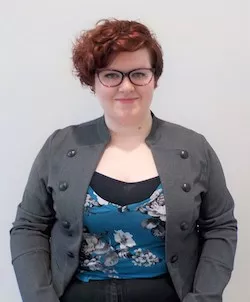
Ashley Taylor
I moved from the US to study Arts at UL. The BA in Arts is a great programme for anyone interested in pursuing an arts or social science subject, since you can tailor the programme to suit your interests. I chose Politics and International Relations, with an emphasis on international institutions and how they affect politics on national and international levels. My programme also allowed me to spend a year abroad; I went to California for six months to work for the government as a legislative intern and I lived in Copenhagen for five months during my Erasmus+ placement at the University of Copenhagen. Studying Politics and International relations at UL has also given me an opportunity to develop crucial soft skills, such as written and verbal communication and research and analysis. Additionally, part of my programme involved writing a Bachelor’s thesis, which gave me an opportunity to do specific research in a subject of my choice (terrorist ideology and behavior) and allowed me to contribute to existing academic research.
After graduation, I decided to stay at UL to pursue my MA in Peace and Development Studies. My undergraduate programme at UL has given me extensive preparation for both my graduate degree and for entering the workplace, especially since I was able to complete a full-time six month internship during the course of my degree. UL has also given me international experience, which is a definite benefit for young professionals entering politics today.
Sarah Cusack
Leaving school and deciding what you want to study in college is quite a daunting task. I decided that I wanted to study something that I was interested in. I chose an Arts degree in UL as it offered very broad and different subject choices. At the time, I initially chose UL as it offered the course I wanted but after researching and visiting UL, I saw it was the best for me because of campus environment, its resources and its facilities. Before I started my degree, I knew that politics would be the subject I wanted to study as I have a keen interest in politics. From open days and my own research, I learnt that Politics and International Relations in UL offered many different interesting modules throughout the four years of the degree. These ranged from Issues in World Politics to Comparative European Politics to Irish Politics. For someone who is fascinated with politics, I knew that I would enjoy studying modules as I am interested in politics outside of Ireland. Over the last four years, I have gravitated towards modules that reflect international politics and that fit with the other subject I study, Public Administration and Leadership. I have enjoyed studying Politics and International Relations as not only did it enhance my knowledge in politics, with tutorials providing an excellent space for debates but I was also given the opportunity to make new friends through group projects and small class sizes. For any incoming students, I have two pieces of advice; Firstly, lecturers and tutors are approachable and helpful so never be afraid to ask questions or contact them. Secondly, make sure to pick a subject that you know that you will enjoy studying over the next four years rather than a subject you feel you should study.
